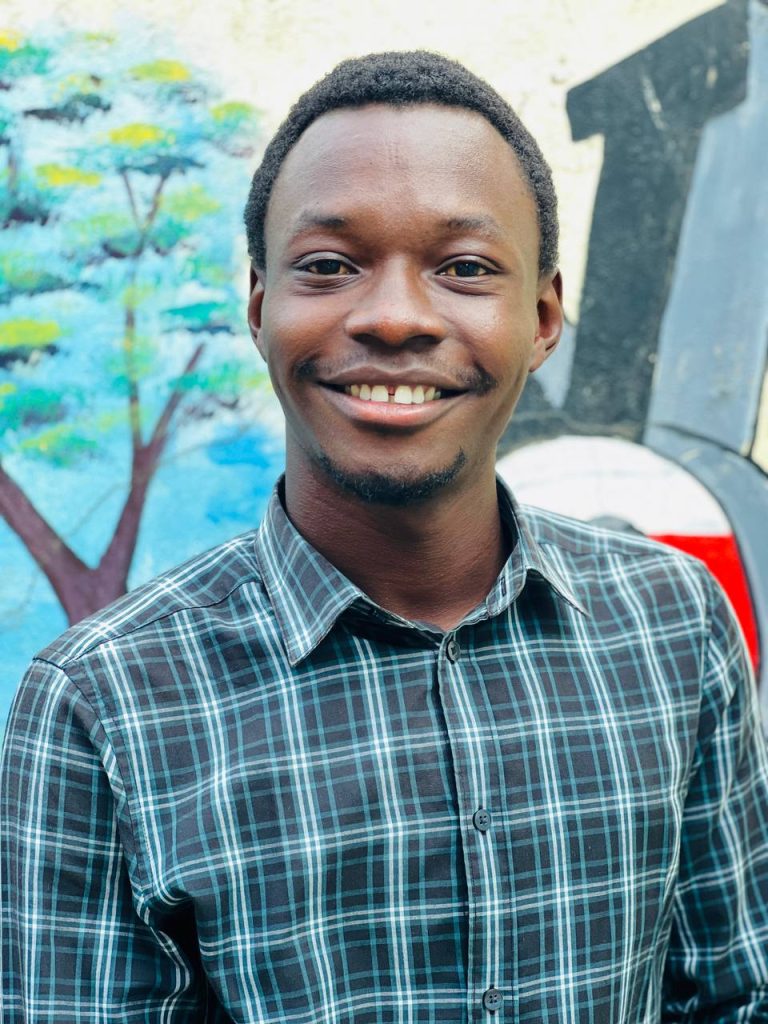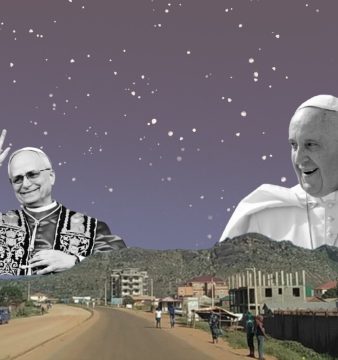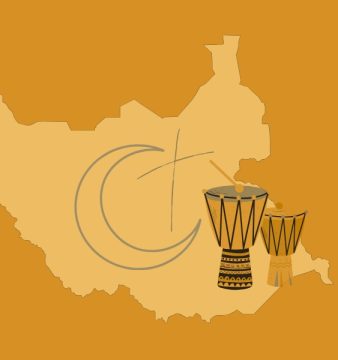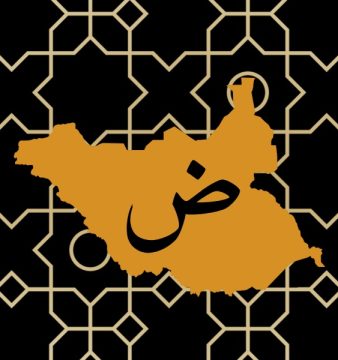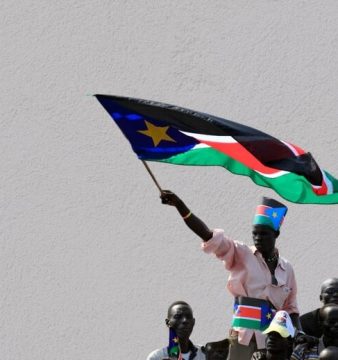Culture and Society in South Sudan in the Face of Climate Change
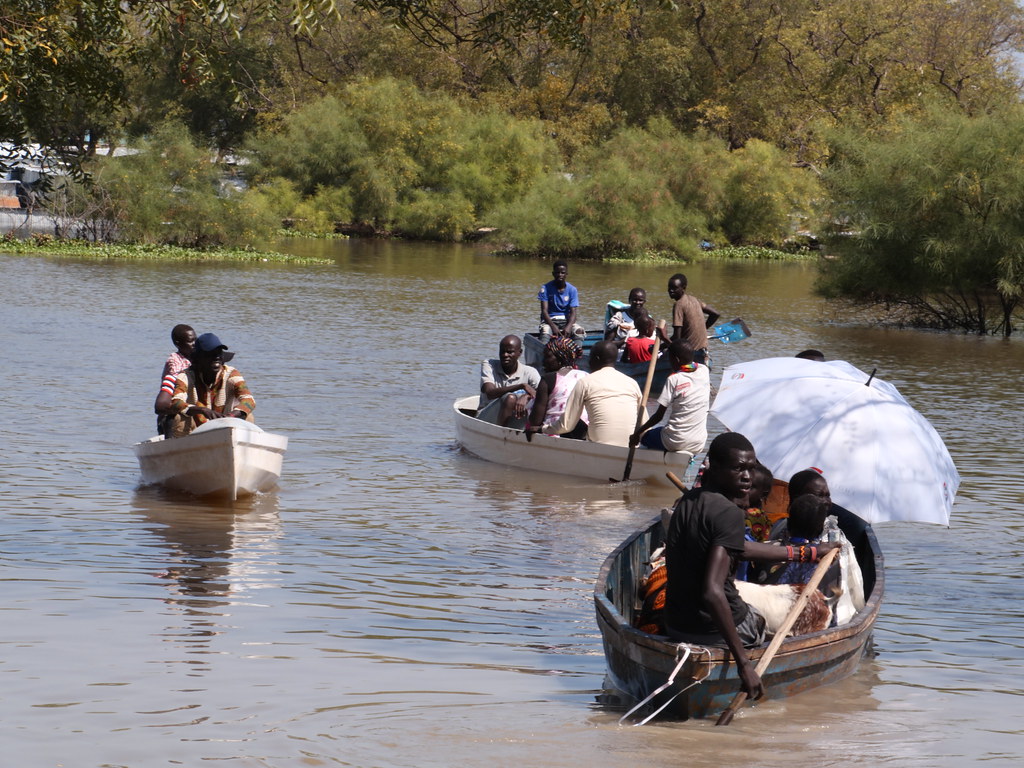
The displacement of human populations takes place as a result of many factors. Although war and conflict are currently the main factor for forced displacement, natural causes and weather-related disasters also force people to leave their homes.
In South Sudan, forced displacement is a result of war and conflict, and natural causes and climate change. According to a recent report by the UN Office for the Coordination of Humanitarian Affairs (OCHA) published on 5 September 2024, flooding has affected more than 710,000 people across 30 of 78 counties and the Abyei Administrative Area. In Upper Nile State, an assessment in Maiwut Centre, Pagak, and Jekow payams of Maiwut County identified 24,000 people affected by floods. Consequently, there are concerns that these displaced communities may never be able to return to their lands. While extreme weather regularly displaces whole communities in other parts of the world, this could be the first permanent mass displacement due to climate change South Sudan
Going beyond material losses, these floods not only cause the destruction of houses and other infrastructure, and leave land under water, but also cause the destruction of a collective memory and heritage. Thinking about the hundreds of traditions and social tapestries that are going under water, the challenges are great and to preserve what can be preserved needs a deep-thinking with high sense of responsibility.
It is difficult to separate the intersection between societies, geographical locations, and customs and traditions. When we look at the peoples of the region, we clearly see how the surrounding environment affects the simplest things such as naming a newborn baby, which is based on the dates of birth and the natural events that took place at that time. In addition, knowing the dates of rituals are sometimes associated with the growth of fruits, flowers, or even the dates of mating of animals and birds in those distinctive surroundings of that particular clan or tribe in the specific region. However, as we are watching the water covering the villages and towns in South Sudan cleared by that huge number of inherited practices, the sense of home, and the meaning of being the people of that particular place are intricately intertwined with all the elements that shape it.
Digging deep in this dilemma, the rising water in South Sudan is threatening to drown generations of oral history. Elders, often the keepers of this knowledge, are now finding themselves displaced and struggling to pass on traditions and wisdom in crowded displacement camps. Looking at this point from a psychological perspective, we can observe the impact of this tragedy on the mental health of displaced individuals experiencing trauma, grief and anxiety, which as a result is interrupting the process of passing on the cultural heritage to the young generations.
The floodwater may be receding, but in the crowded displacement camps scattered across the country, as the original geographical region becomes uninhabitable, a different kind of tension is rising. However, tribes once separated by the land, now find themselves vying for limited resources, shelter and aid. Traditional ways of resolving disputes, often reliant on the wisdom of elders and sacred spaces now submerged, hold little sway in these unfamiliar and crowded settings, and for people with good houses in the big cities. Consequently, whispers of old grievances echo in the long lines for water, fueling a simmering anger that threatens to boil over into open conflict. The very fabric of the community, already strained by years of hardship, is fraying under the weight of displacement.
The flooding has also damaged the family rhythms of life, as it is destroying the structure and narrowing down families’ sizes, blurring the lines of traditional gender roles. Women, long responsible for tending fields and gathering water, now bear the burden of providing for their families in the camps. Their journeys for resources are fraught with risk, their burdens heavy and their worries even heavier. On the other hand, men, their identities as providers challenged by the loss of livestock and fishing grounds, grapple with unfamiliar feelings of helplessness. While deeply unsettling, this disruption also carries with it the seeds of changes.
The flooding is slowly receding from the villages and towns of South Sudan, leaving behind more than just homes and ruined crops. However, the very soul of the nation, its rich tapestry of traditions, stories, and social bonds, has been shaken to its core. The tangible losses are evident: homes destroyed, crops devastated, and ancestral lands submerged. Yet, it is the intangible losses that pose the greatest threat to the identity of South Sudan. The erosion of cultural memory, the silencing of ancient songs, and the fracturing of community bonds cut deeper than the physical destruction.
In this critical situation that demands our attention, not just as a humanitarian concern, but as a cultural one. We must act now, not only to provide immediate relief and support for rebuilding lives and livelihoods, but also to safeguard the cultural heritage and traditional social structure that is at risk of being washed away. By amplifying the voices of South Sudanese communities advocating for climate justice, these are just some of the ways we can help. The floods in South Sudan are a stark reminder that climate change is not just an environmental crisis; it is a cultural crisis, a human crisis. We must listen to the stories carried on the rising waters, learn from the resilience of the South Sudanese people, and act before more than just homes are lost. Let us ensure that the waters of change, though turbulent, do not extinguish the unique cultural flame that burns in the heart of South Sudan.
500WM Columnist Butros Nicola Bazia, born in Khartoum, Sudan in 2001, is a South Sudanese independent writer and storyteller currently based in Juba, South Sudan. He began his content creation journey with Young Black Voice Podcast in 2022 and transitioned to creative writing in 2023, driven by a deep interest in arts, culture, and society. His work reflects resilience and creativity, even amidst the challenges posed by ongoing conflict in the region. Nicola now runs his own blog, Autide Me, and has published works in Sudans Post and 500 Words Magazine, where he currently serves as a columnist.

